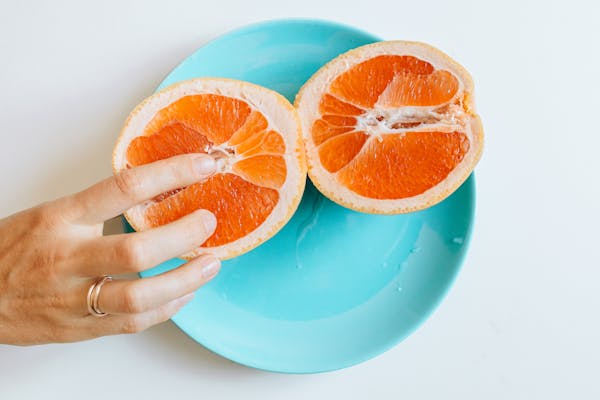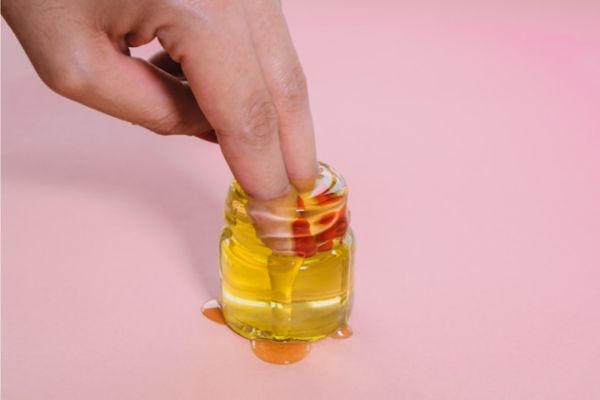In the following content, the terms “women” and “men” are used to refer to individuals based on traditional gender identities. While we acknowledge and respect the diversity of gender identities and expressions, we have opted to use these terms for clarity and accessibility. We understand that not all individuals identify with the gender binary, and we strive to create inclusive and welcoming spaces for everyone, regardless of gender identity. Our intention is to communicate information in a way that is widely understood and relatable while recognising the importance of respecting individual identities and experiences. If you have any questions or concerns regarding our language choices or inclusive efforts, please don’t hesitate to reach out to us. We are committed to fostering open dialogue and creating content that is respectful and affirming of all gender identities.
In a society where female sexuality and pelvic health are often shrouded in silence and stigma, the act of masturbation is seen as particularly taboo. The time has come to break free from these outdated constraints and embrace a healthier, more empowered perspective on self-pleasure. Female masturbation is a natural and normal aspect of human sexuality. Yet, for too long, women have been made to feel ashamed or embarrassed about exploring their own bodies and experiencing pleasure. This stigma led to a culture of secrecy and misinformation surrounding masturbation, perpetuating harmful myths and inhibiting open dialogue. It’s crucial to recognise that masturbation is not only a pleasurable act but a valuable form of self-care and self-discovery. By engaging in masturbation, women can explore their desires, learn about their bodies, and enhance their overall sexual well-being. It’s a healthy way to cultivate a deeper sense of self-awareness and self-love. Breaking down the barriers of shame surrounding female masturbation requires fostering open and honest conversations. By sharing experiences, knowledge, and insights, we can support each other in embracing our sexuality and celebrating our bodies without judgment or stigma. Creating safe spaces where individuals feel comfortable discussing topics related to sexuality is essential in dismantling the shame associated with masturbation. Education plays an equally pivotal role in challenging misconceptions and promoting positive attitudes towards female pleasure. Providing accurate information about anatomy, sexual health, and the benefits of masturbation can empower women to make informed choices and take control of their own sexual experiences.

It’s essential to recognise the diversity of experiences and preferences when it comes to masturbation. What works for one person may not work for another, and that’s perfectly okay. Each individual deserves the freedom to explore their sexuality in a way that feels authentic and fulfilling to them, free from societal pressures or expectations. As we continue striving to destigmatize female masturbation, it’s important to acknowledge the intersectionality of gender, race, culture, and identity. Recognising and addressing the unique challenges and barriers that different groups face is crucial in creating a more inclusive and supportive environment for all individuals to embrace their sexual autonomy.
During any social gathering, people typically engage in conversation around a wide range of topics, but what are we typically asked to avoid? Any talk of religion, politics, and, you guessed it – sex. The stigmatisation of sex and sexual health is burdensome to patients and clinicians alike. The taboo surrounding sexual health leads to a great deal of questions, including those involving masturbation and penetrative intercourse. In various societies, masturbation is often viewed as taboo and criticised as immoral. However, masturbation is a natural aspect of a healthy sexual lifestyle, even before one is actively engaging in sex. Many individuals isolate themselves due to the stigma, misconceptions, and taboos surrounding masturbation, causing feelings of guilt, anxiety, and shame that are harmful to overall well-being.

Exploring one’s sexuality through masturbation is a natural part of human development, often overlooked due to an inadequate understanding of typical sexual growth. As individuals go through puberty, their primary sex organs, like ovaries, penis, uterus, and testes, undergo significant growth and development. This leads to the emergence of strong sexual feelings, which can be alleviated through masturbation. Masturbation is a fundamental aspect of human sexuality. Let’s get down to what masturbation really means. Masturbation is a typical practice that includes utilising your fingers, your hands, sex toys, or other items that stimulate the body for sexual satisfaction. Often, this can occur in vagina owners as clitoral stimulation or in penis owners as stroking the shaft of the penis. Both penis and vagina owners engage in self-pleasure, despite the misconception that “women” are less likely to participate in this activity. Research indicates that “men” tend to engage in masturbation more frequently. [1]Nevertheless, it doesn’t imply that females never engage in self-pleasure. Vagina owners of various ages and with diverse sexual preferences find pleasure in self-pleasure. Self-pleasure typically includes stimulating the clitoris, which is a tiny and delicate organ composed of erectile tissue located in the vulva, to experience sexual pleasure. The organ is highly sensitive due to the presence of thousands of nerve endings. Exploring one’s body through masturbation can be a valuable way for women to gain insight and understanding of themselves without feeling any shame or guilt. Getting to know your body intimately is perfectly normal and nothing to be embarrassed about. In fact, masturbation offers significant health advantages for vagina owners as opposed to the messaging of the stigmas surrounding it.

Benefits of Masturbation for Females
Exploring one’s body through masturbation can enhance awareness of our physical selves and sexual desires, leading to a more fulfilling and enjoyable intimate experience. This assists in recognising any sort of discomfort or pain one may encounter during sexual activity, enabling them to tackle potential reproductive health concerns at an early stage. A number of chemicals, including dopamine, the natural painkiller called endorphins, and the feel-good love hormone oxytocin, are released during masturbation. These chemicals assist in enhancing your mental state immediately and enhance your concentration after orgasm. For those who are postmenopausal, vaginal narrowing can lead to discomfort during sexual activity and pelvic exams. Using water-based lubricants during masturbation reduces moisture issues and avoids vaginal narrowing. Engaging in masturbation can improve blood circulation to the genital region, promoting the well-being of the reproductive system. It can also enhance sexual performance and help in reducing stress and tension, leading to a beneficial effect on one’s general health and wellness. Research shows that women who reported higher levels of orgasms, masturbation pleasure, and sex frequency had a lower risk of cardiovascular disease and type 2 diabetes. [2] Out of all sexual activities, masturbation is the most secure option. When engaging in solo sexual activity, there is no risk of contracting a sexually transmitted infection (STI) or getting pregnant.

Benefits of Masturbation During Pregnancy
Fluctuations in hormones during pregnancy can lead to increased sexual desire for some. Many find that masturbation is a safe way to relieve sexual tension while pregnant. Here are additional advantages of masturbation for expectant mothers. Throughout pregnancy, one can experience fatigue, morning sickness, and frequent vomiting, which can result in exhaustion, causing a loss of interest in sexual activity. During pregnancy, masturbation can fulfill the natural physiological need, allowing them to better understand their body’s transformations during this time. Engaging in sex or masturbation are natural ways to manage libido in people who are pregnant with low-risk pregnancies. Masturbating while pregnant is safe for both the mother and the unborn child, according to many specialists. Because the fetus is totally protected from the outside world inside the amniotic sac within the uterus, masturbation during pregnancy does not pose any risks to the fetus’s health. Engaging in masturbation can be a helpful method to reduce stress and anxiety, which is particularly crucial during pregnancy when hormonal shifts may lead to mood swings and emotional turmoil. Being pregnant can frequently disturb sleep patterns because of physical unease and hormonal fluctuations. Engaging in masturbation can assist in relieving stress and improving sleep quality by triggering the production of hormones that encourage relaxation and sleep. Engaging in masturbation boosts blood circulation to the pelvic region, which can be advantageous while expecting a baby. Enhanced blood flow can assist in decreasing swelling, easing discomfort, and enhancing overall well-being. Experiencing orgasms while pregnant can trigger uterine contractions, which assist in maintaining uterine strength and enhancing blood circulation to the placenta. This can help enhance the baby’s cognitive growth. In addition to maintaining a balanced diet and engaging in suitable physical activities, masturbation during pregnancy is viewed as a normal aspect of women’s lives. Reaching climax can boost the immune system by increasing the production of antibodies that defend against colds and harmful bacteria. Despite all the advantages, avoid masturbating if you have lower urinary tract infections, gynecological inflammatory disorders, or high-risk pregnancies with conditions including maternal gestational diabetes, pre-eclampsia, low placental abnormalities, placenta previa, or a short cervix.

Masturbation Mythbusters
Many individuals experience feelings of shame and guilt surrounding masturbation due to societal, religious, and moral influences, as well as outdated misconceptions. Let’s dispel this myth and shed light on some other prevalent misunderstandings about masturbation:
MYTH: Masturbation can cause infertility
REALITY: No proven link has been established between frequent masturbation and infertility
MYTH: Engaging in masturbation can lead to erectile dysfunction (ED) in males.
REALITY: That is incorrect! It does not lead to erectile dysfunction in men.
MYTH: Masturbation may lead to heart weakness
REALITY: While it’s true that masturbation and other forms of sexual activity might temporarily increase the rate of heartbeat and blood pressure, there is no evidence that they have any detrimental effects on arterial health.
MYTH: Engaging in masturbation may lead to vision impairment
REALITY: This is a widely spread misconception and is completely false. There is no direct correlation between masturbation and blindness based on any study or research.
MYTH: Masturbation causes PCOS
REALITY: Masturbation does not cause Polycystic Ovary Syndrome (PCOS) in females. When a woman has PCOS and experiences irregular or absent periods, it may affect her interest in sexual activities and potentially lead to an increase in masturbation.
MYTH: Couples are not involved in masturbation
REALITY: Regardless of your relationship status, masturbation is a beneficial sexual practice that can help satisfy your sexual needs.
MYTH: Engaging in masturbation can harm the genital area
REALITY: It is highly unlikely that touching your genitals will cause any harm. Sex organs are built to endure friction, making them very resilient. The most harm that can result from masturbation is minor chafing. Applying lubricants can help prevent this from happening.

Masturbation is completely natural, regardless of gender and age. Now that these misconceptions have been clarified, you can confidently enjoy masturbation without any lingering uncertainties. Feel free to fully explore and enjoy the fulfillment and joy that comes from embracing your sexuality and connecting with your own body. Every part of your body is unique and functions in its own way. We no longer need to be ashamed or feel guilty about masturbating, as it’s a common occurrence and indicates good health. For individuals who opt to engage in self-pleasure, it is considered a form of self-care, a moment for exploration and personal growth. Female masturbation should be celebrated as a natural and empowering aspect of human sexuality. By challenging shame, fostering open dialogue, promoting education, and embracing diversity, we can create a culture that values and respects women’s right to pleasure and self-discovery. Together, let’s break the silence, dismantle the stigma, and embrace a more liberated and empowered approach to female masturbation.
+++
Sources
[1] Leitenberg H, Detzer MJ, Srebnik D. Gender differences in masturbation and the relation of masturbation experience in preadolescence and/or early adolescence to sexual behavior and sexual adjustment in young adulthood. Arch Sex Behav. 1993 Apr;22(2):87-98. doi: 10.1007/BF01542359. PMID: 8476336.
2 Liu H, Waite LJ, Shen S, Wang DH. Is Sex Good for Your Health? A National Study on Partnered Sexuality and Cardiovascular Risk among Older Men and Women. J Health Soc Behav. 2016 Sep;57(3):276-96.
